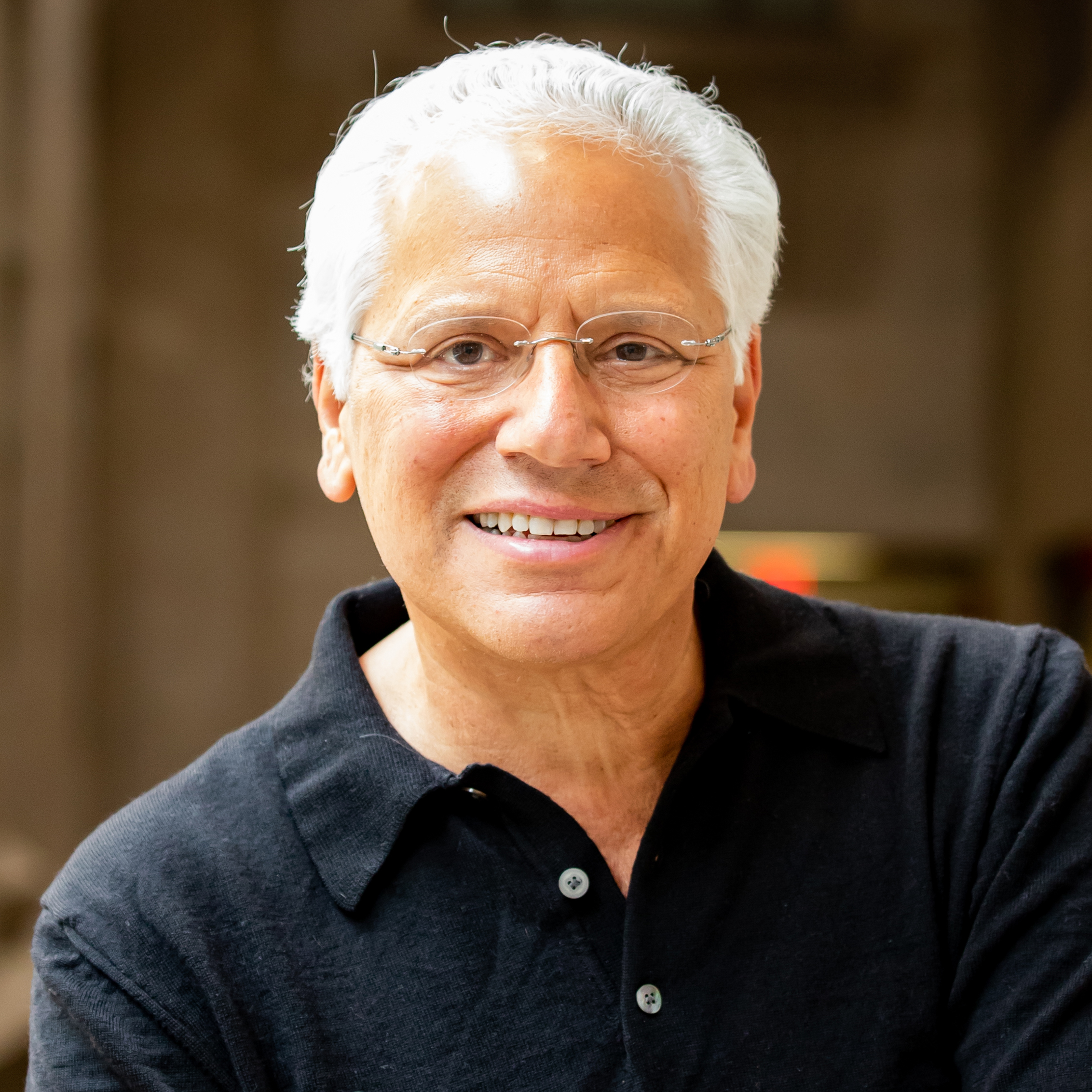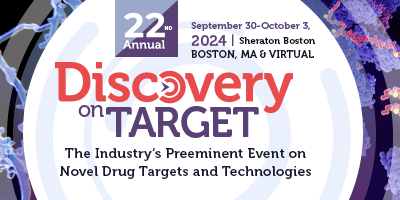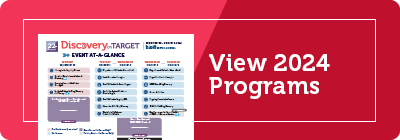主题演讲
请与世界各地的同行一起来参加Discovery on Target的主题演讲议程。位于会议中期举行的这个议程,将邀集全球制药专家,是您可从业界名人身上学习到从整体视角、创新技术到启发性趋势等内容的机会。
今年的主题演讲将于10月2日(星期三)上午10:50至下午12:35举行(EDT)。
2024年10月2日(三)
10:55 am Discovery of Transformative Rx to Treat Obesity and Related Diseases Richard DiMarchi, PhD, Distinguished Professor of Chemistry and Chair, Biomolecular Sciences, Indiana University; former Executive, Lilly and Novo Research Labs
Richard DiMarchi, PhD, Distinguished Professor of Chemistry and Chair, Biomolecular Sciences, Indiana University; former Executive, Lilly and Novo Research Labs
Obesity represents a medicinal challenge that warrants broad molecular diversity. We have pioneered the recruitment of endogenous hormones and physiological mechanisms optimized for pharmacological purposes to address it. The discovery of single-molecule, multi-mechanism incretins enables breakthrough efficacy in lowering body weight. The integrated pharmacology of these peptides, with endocrine proteins and nuclear hormones, is providing a library of drug candidates that promises even greater clinical outcomes and therapy for associated diseases that have historically proven as intractable to treat as obesity once constituted.
Professor DiMarchi is a member of the National Academy of Medicine and the National Inventors Hall of Fame. He is a former Group Vice President at Lilly and later Novo. His contributions pertain to the discovery and development of Humalog®, rGlucagon®, Forteo®, and Evista®. His research includes discovery of peptides transforming the treatment of diabetes and obesity. He is co-inventor on >100 U.S. patents and co-author to >250 scientific publications. He was identified as a top-five translation researcher by Nature Biotechnology. Since 2003, he has co-founded eight successful biotech companies.
11:40 am Fragment-Based Drug Discovery for Elusive Cancer Targets Stephen W. Fesik, PhD, Professor of Biochemistry, Pharmacology & Chemistry; Orrin H. Ingram II Chair in Cancer Research, Vanderbilt University
Stephen W. Fesik, PhD, Professor of Biochemistry, Pharmacology & Chemistry; Orrin H. Ingram II Chair in Cancer Research, Vanderbilt University
The most highly validated cancer targets (KRAS, MYC, and WNT) affecting the majority of cancers are thought to be impossible to drug. Using fragment-based methods that I pioneered over 25 years ago, we have discovered mutant selective and pan KRAS inhibitors, potent inhibitors of the MYC cofactor WDR5, and degraders of b-catenin in the WNT pathway. These novel inhibitors/degraders should have a tremendous impact on cancer treatment in the future.
Stephen W. Fesik, PhD is the Orrin H. Ingram II Chair in Cancer Research and a Professor of Biochemistry, Pharmacology, and Chemistry at Vanderbilt University School of Medicine. He is also a member of the Vanderbilt Ingram Cancer Center (VICC), the Vanderbilt Institute of Chemical Biology (VICB), and the Center for Structural Biology (CSB). The focus of his research is on cancer drug discovery using fragment-based approaches and structure-based drug design. Prior to joining Vanderbilt in May 2009, Dr. Fesik was the Divisional Vice President of Cancer Research at Abbott (2000-2009) where he built a pipeline of compounds that are showing promising anti-cancer activities in early-stage clinical trials. In addition, while he was at Abbott, he developed several new NMR methods, determined the three-dimensional structures of several proteins and protein/ligand complexes, pioneered a fragment-based method for drug discovery called SAR by NMR, and applied this method to identify and optimize ligands for binding to many protein drug targets. Dr. Fesik has published more than 295 papers, trained 68 postdoctoral fellows, and has served as a member of the Editorial Boards of many scientific journals, scientific advisory boards, and the Keystone and Bruker Board of Directors. He has also obtained several awards, such as the Lifetime Achievement Award in Nuclear Magnetic Resonance from EAS (2003), the SBS Technology Innovation Award (2010), the NIH Director's Pioneer Award (2010), the AACR Award for Outstanding Achievement in Chemistry in Cancer Research (2012), and 2021 Chester Stock Award from Memorial Sloan Kettering Cancer Center.
* 活动内容有可能不事先告知作更动及调整。






